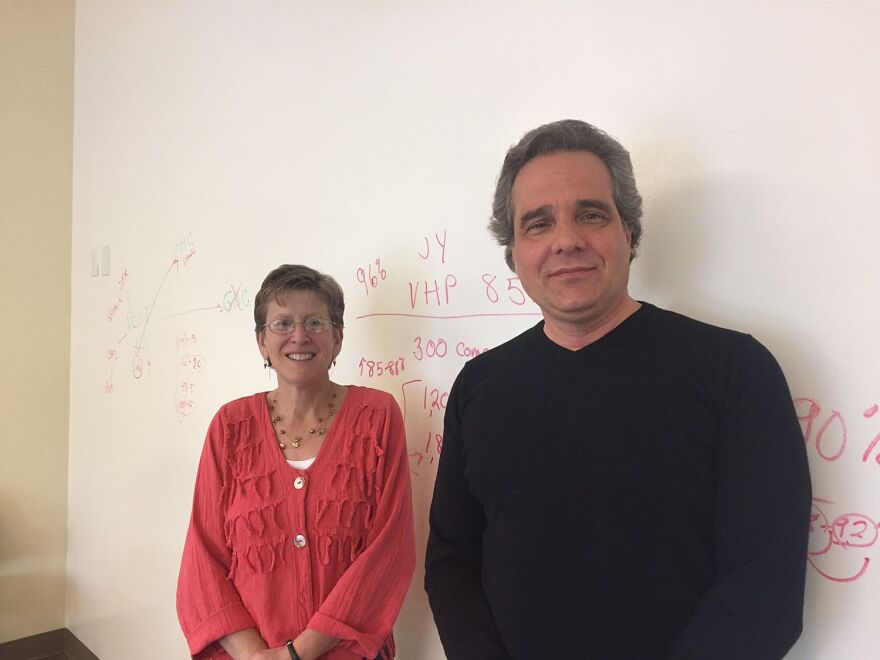A push to drive down health care costs for public school employees has suddenly taken over the political debate in Montpelier, but efforts to control those expenses have actually been going on behind the scenes for two years now.
Public school employees get their health insurance through something called the Vermont Education Health Initiative, or VEHI for short. It’s a non-profit that’s been offering health plans to school districts for more than 20 years. About two years ago, for reasons related mostly to the federal Affordable Care Act, VEHI decided it would soon be time to decommission up its old policies, and come up with new plans.
“We have invested tremendous time and energy into designing these new plans to bring value to our members and to bring the opportunity for savings to the state of Vermont,” says Laura Soares, the president of VEHI.
The new plans will go into effect on Jan. 1 of next year, and that means every school district in the state is renegotiating health care contracts that cover not just teachers, but school support staff as well.
Soares says that when VEHI began creating the new plans, cost containment was a top priority. After consulting with Blue Cross Blue Shield of Vermont, they landed on a new strategy.
“What’s changing that is taking the most focus and people’s energy is that our out-of-pocket costs are being increased in these new plans,” Soares says.
Here’s the premise: If policyholders have to pay more money up-front for medical services, they won't rack up as many medical bills. There’s a term for this actuarial phenomenon, and it’s called “induced utilization.”
"What's changing that is taking the most focus and people's energy is that our out-of-pocket costs are being increased in these new plans." — VEHI President Laura Soares
Soares says the idea is to shift consumer behavior in ways that lower overall health care expenses among the 36,000 Vermonters covered by VEHI, but not to do it in ways that lead to poorer health outcomes.
“Because if we can pay fewer claims without impacting people’s health care, that’s good for the system, because that means our premiums can stay lower, which means school budgets' and employees' share of premium from their paychecks can stay lower,” Soares says.
Here’s the rub: The premium savings baked into VEHI’s projections assume some out-of-pocket exposure for teachers and other school employees covered by those plans. But, as Soares explains, “whether or not employees will have higher out-of-pocket costs depends on the bargaining at the local level.”
So Gov. Phil Scott wants to take the guesswork out of that equation by creating a statewide teacher health care contract. He says it would give his administration the ability to ensure that public school employees have some skin the game, as it were.
The teacher's union and Democratic leaders in the House and Senate say the governor’s plan is an assault on the collective bargaining rights of public school teachers.
“And so we’ve sort of found ourselves thrown into the limelight, where our effort that’s been a broad effort for two years is intersecting with the state’s effort to find some property tax savings,” Soares says.
Soares says she has no opinion on the governor’s plan. Neither does Mark Hage, a VEHI trust administrator who’s also the member benefits administrator at the Vermont-NEA, which represents teachers and other school employees.
“I think it’s best for Laura and I just to steer clear of that political debate,” Hage says. “That’s for others to handle.”
Hage says affordability is critical when it comes to health benefits, and that keeping costs down is a worthwhile enterprise. But he says using financial disincentives to drive down overall health care costs is an approach that VEHI will have to monitor closely.
Hage says actuaries will be able to tell VEHI if people are accessing less care.
“They cannot tell you if lower utilization was a medically wise decision by an individual or a family or not,” Hage says. “And hopefully down the road we’ll be able to make some judgments about that based on our own surveys and work.”
It’s also unclear at this point what kind of savings the new benefit plans will produce. Soares says the actuaries have forecast reductions in overall health care expenses.
“Whether that saving the system money from fewer claims overall comes to pass is a few years down the road. We need data in order to demonstrate that,” Soares says.
The debate over the health plans that Soares and Hage helped develop will likely culminate this week, when lawmakers and the governor return to the Statehouse to try to negotiate a compromise, and avoid a budget veto.





